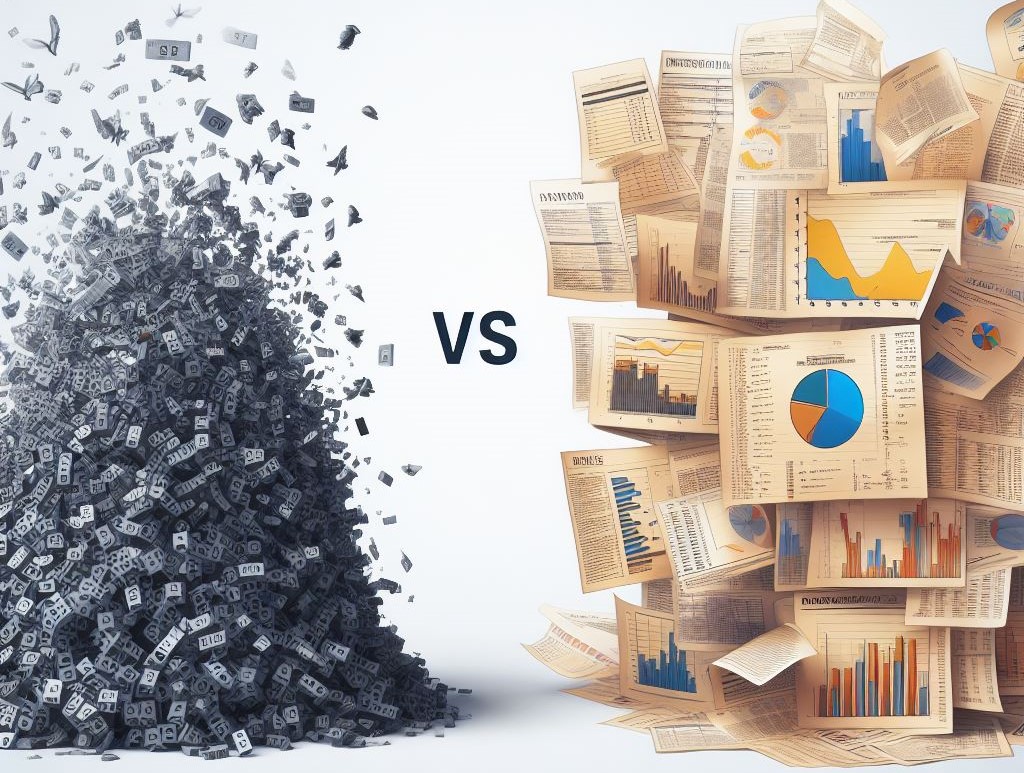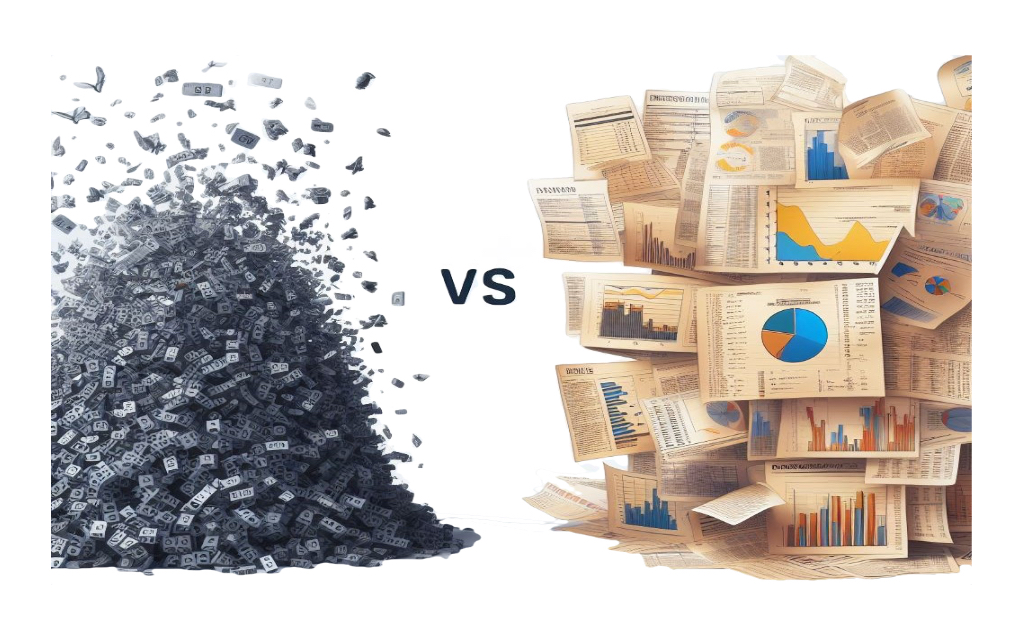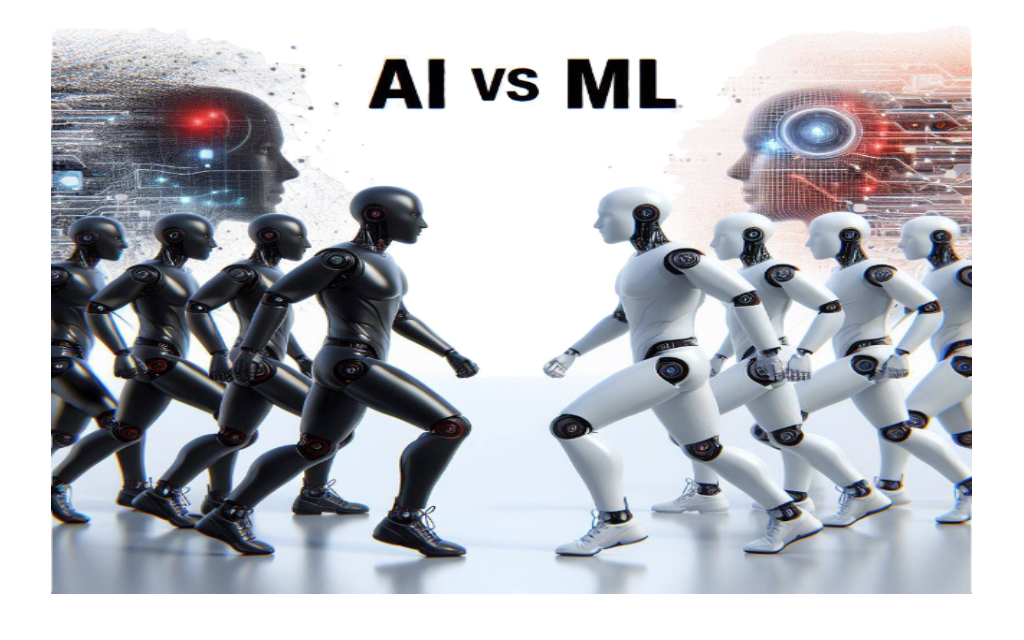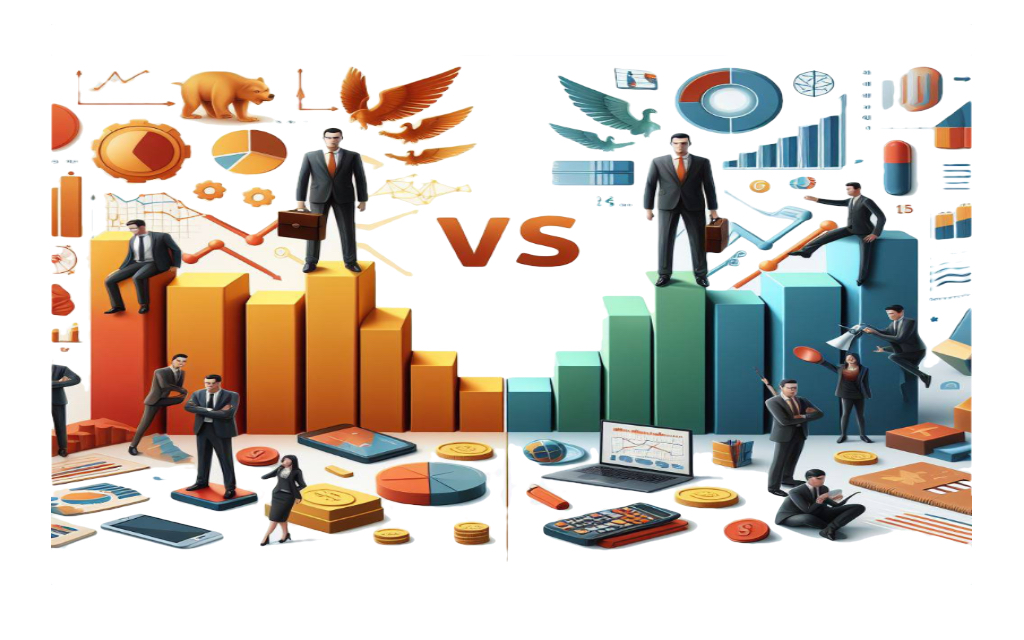In the digital age, we are surrounded by vast amounts of data and information. While these terms are often used interchangeably, they have distinct meanings in the context of information systems.

“Data is the new oil.”
Clive Humby
What is Data?
Data refers to raw, unprocessed, and unorganized facts or details that alone might not make much sense. It is the raw material that is processed to extract valuable information. Data can exist in various forms – it could be numbers, characters, symbols, images, etc. For example, a collection of random numbers is data.
The word “data” originates from the Latin word “datum” which means “(thing) given”. It is the neuter past participle of “dare” which means “to give”. The term was used in the 1640s to represent “a fact given or granted”. In classical use, it originally meant “a fact given as the basis for calculation in mathematical problems”. From 1897, it started being used to represent “numerical facts collected for future reference” 1
What is Information?
Information, on the other hand, is data that has been processed, organized, or structured in a way that it’s meaningful and useful. It provides context for data, gives it meaning, and makes it useful for decision making. For instance, when the data is processed and we know that those random numbers represent the ages of a group of people, it becomes information.
The term “information” comes from the Latin word “informationem”, which means “outline, concept, idea”. This word is derived from the verb “informare”, which means “to give form to the mind, to train, instruct, educate”. The English word was apparently derived from the accusative form of “informationem”, and came via French.
The Transformation from Data to Information
The transformation from data to information involves processes like sorting, calculating, interpreting, analyzing, and summarizing. This process adds value to the raw data and turns it into a meaningful entity.
For example, a company might collect data such as the age, gender, and purchasing history of their customers (data). When this data is analyzed and used to understand buying patterns and trends, it becomes information.
Why the Distinction Matters?
Understanding the difference between data and information is crucial in various fields, including business, research, information technology, etc. In the business world, it can help organizations make informed decisions, understand their audience better, and improve their services.
In conclusion, while data is raw and unprocessed, information is processed data that provides context and meaning. Both are crucial in our information-driven world, but it’s the transformation of data into information that provides the insights and knowledge we need to make decisions, solve problems, and understand the world around us.
Summarize:
| Data | Information |
|---|---|
| Meaning: raw, unprocessed, and unorganized | processed, organized, or structured |
| fact | context |
| does not depend on information | depends on data |
| in the form of graphs, numbers, figures, or statistics | through words, language, thoughts, and ideas |
| – Quantitative: in numerical form (weight, volume, cost) – Qualitative: descriptive, but non-numerical (name, sex, eye color) | |
| Etymology: The word “data” originates from the Latin word “datum” which means “(thing) given”. | The term “information” comes from the Latin word “informationem”, which means “outline, concept, idea”. |
| Examples: number of website visitors price of a competitors’ product a student’s test score | website traffic changes product price comparison average score of a class |
| 20°C, 80% humidity, wind speed 10 km/h | The weather is warm with high humidity and a light breeze. |

SUBSCRIBE to my channels to learn more about data analytics and engineering and stay updated with the latest news.





Leave a Reply